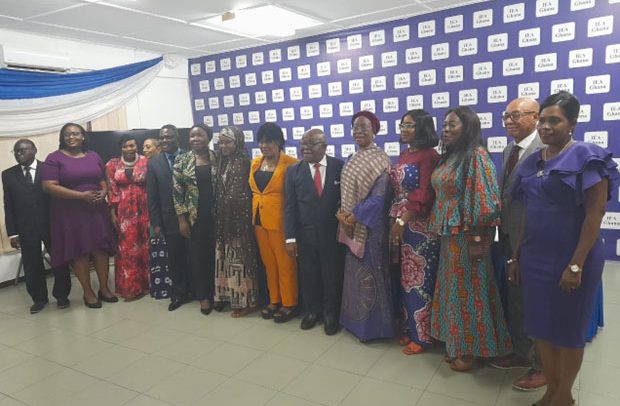Reserve 30% Parliamentary Seats For Women
Constitutional Review Commissions have been charged to consider a quota system in any future review process by reserving 30 percent seats for women in Parliament.
A former Head of the Political Science Department of the University of Ghana, Dr. Maame Adwoa Gyekye-Jandoh, who said this when she addressed participants at the Prof. Mike Oquaye Centre for Constitutional Studies at the Institute of Economic Affairs (IEA) in Accra, said such a move would lead to active and increased participation of women in politics.
She stressed, “The call is made for amendment of the 1992 Constitution to mandate that at least 30% of elected seats in Parliament go to women and also that women occupy at least 30% of positions in other decision-making bodies. In other words, 30% of the total number of parliamentary seats must be reserved for women, who must themselves be elected.”
According to her, a quota system would not only lead to the active recruitment of women by political parties but would also help in the recruitment of qualified candidates and bring on board women’s voices.
“Burundi, Kenya, Somalia, the United Republic of Tanzania, and Uganda have clear constitutional quotas for National Parliaments. Among these countries, Burundi, Rwanda and the United Republic of Tanzania call for 30% quotas for women in Parliament,” she added.
She also maintained that for a quota system to be implemented, there had been proposals to create an independent implementing entity such as the Gender Equality Ministry or Commission to plan, monitor and implement all the policies and activities related to the Affirmative Action Bill, with sanctions for non-compliance.
Dr. Gyekye-Jandoh also stated that in spite of the provisions of the 1992 Constitution which adequately provided for a broad framework within which to achieve gender equality, coupled with both the Constitutional Review Commission and the 2012 White Paper on the Report, the Affirmative Action Bill had still not been passed.
She, therefore, called for the immediate passage of the Affirmative Action Bill into law, adding that several drafts of the bill have been prepared and laid in Parliament since the last version in 2020.
A lecturer at the University of Ghana Law School, Maame Yaa Akyia Mensah-Bonsu, described Article 27 of the Constitution as a double-edged sword which addressed the challenges faced by women in the past but has failed to address some of the limitations in defining motherhood.
According to her, that provision of the constitution speaks of mothers in one context in their mothering capacity, though there are different kinds of mothers as women, who for example, adopt or have miscarriage are not covered.
That gap, she said, could be bridged through education where a lot of women can be pushed from the bottom of the country’s cultural setting to the boardroom.
A former Member of Parliament for Evalue-Ajomoro-Gwira Constituency and currently the Head of Strategic Communication of Ghana’s Coordination Office of African Continental Free Trade Area (AfCFTA), Catherine Afeku, said a quota system was achievable if it was backed by legislative instrument like what was done in the First Republic where 10 percent seat was reserved to address the situation in Parliament where only few women were represented on select committees.



